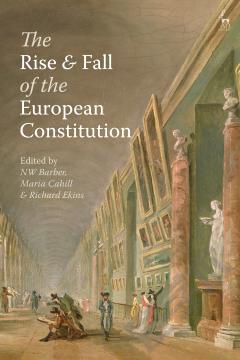The European Constitution and National Constitutions —— Ratification and Beyond
----- 欧洲宪法与国家宪法:批准与其他
Whether the Constitutional Treaty will enter into effect¿or the prospect of the EU having a constitutional text is pushed back to a much more distant future the ratification of an EU Constitution raises questions of fundamental importance from the point of view of national constitutional law. Whilst constitutions have traditionally been linked to states, more recent theories, such as post-national, multi-level, or intertwined constitutionalism, recognise the possibility for a constitution to exist in a non-state context. In this very valuable book, which focuses on the ratification of the European Constitutional Treaty, twenty-eight authorities in constitutional and EU law examine the extent to which such theories have made inroads in national constitutional thinking.The contributors examine the debates and official documents of the political institutions that have been involved in the ratification process in the Member States, as well as constitutional court decisions and scholarly discourse. They also cover a range of closely related issues, such as the amendment of national constitutions, ratification referendums, and the implications of the codification of the principle of primacy in the European Constitution. The book includes reports from 17 EU Member States, as well as a view from a candidate country, Croatia. These reports, along with other papers on the nature and content of the Constitutional Treaty, consider the following issues:the process and legal framework of ratification in each of the examined Member States;the novel category of constitutional treaty;constitutional elements in existing EC/EU treaties;types of constitutions and constitutionalism, and constitutions in non-state contexts;the implications of the primacy clause;ratification referendums;eurosceptic fears of the development of a super-state.The book is based on the proceedings of an international conference that was held in Tallinn, Estonia, in November 2005.By assessing the implications of the European Constitution from the perspective of national constitutional law, this book fills an important gap in the literature. It also makes a contribution to the emergence of a true European-wide constitutional debate, by providing both researchers and policy-makers with comparative information regarding the constitutional aspects of ratification in Member States. It will be of absorbing interest and value for years to come as the European constitutional debate continues.
{{comment.content}}








 京公网安备 11010802027623号
京公网安备 11010802027623号